CHAINED to a post on a tiny concrete platform, a fully-grown tiger lets out a low moan as the zoo-keeper uses a stick to subdue him – so a tourist can stroke him for a snap.
The clearly disturbed creature turns and snaps, only to be cowed once more by his captor – who yanks his head down by the metal collar around its neck.
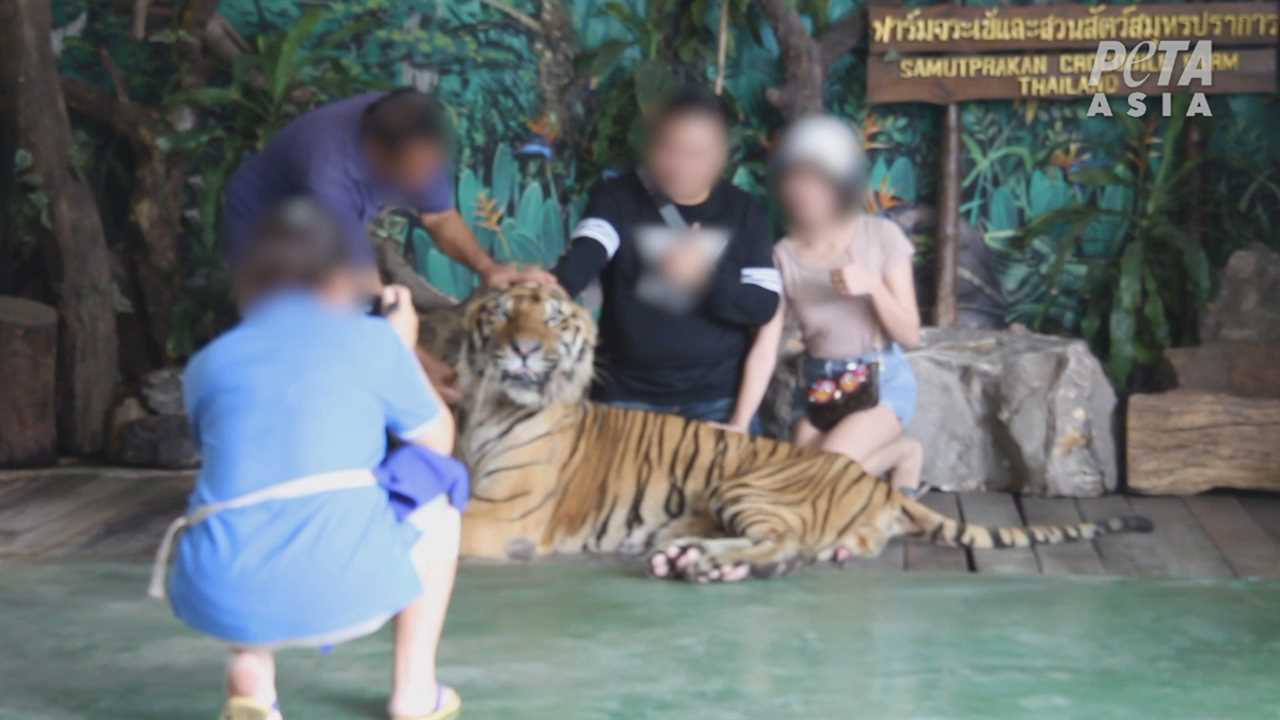
The tragic sight, shown in the National Geographic documentary Trafficked, which airs on Monday, was filmed at the Samut Prakan zoo in Thailand – where Tiger King’s Doc Antle delivered seven of his own cats in 2005.
The big cat breeder – who featured in last year’s Netflix hit as Joe Exotic’s mentor – claimed conditions at the Bangkok attraction were “better than any Florida zoo”.
Yet journalist Mariana Van Zeller, who investigates the wider issues of tiger trafficking in the first episode of the series, was horrified by the treatments of the regal animals.
Yards away from the chained tiger a young cub, no more than eight weeks old, is housed in a cage barely bigger than itself.
In another tiny, bare enclosure with no vegetation, six more adults pace the floor in 90 degree heat. One is clearly blind in one eye.
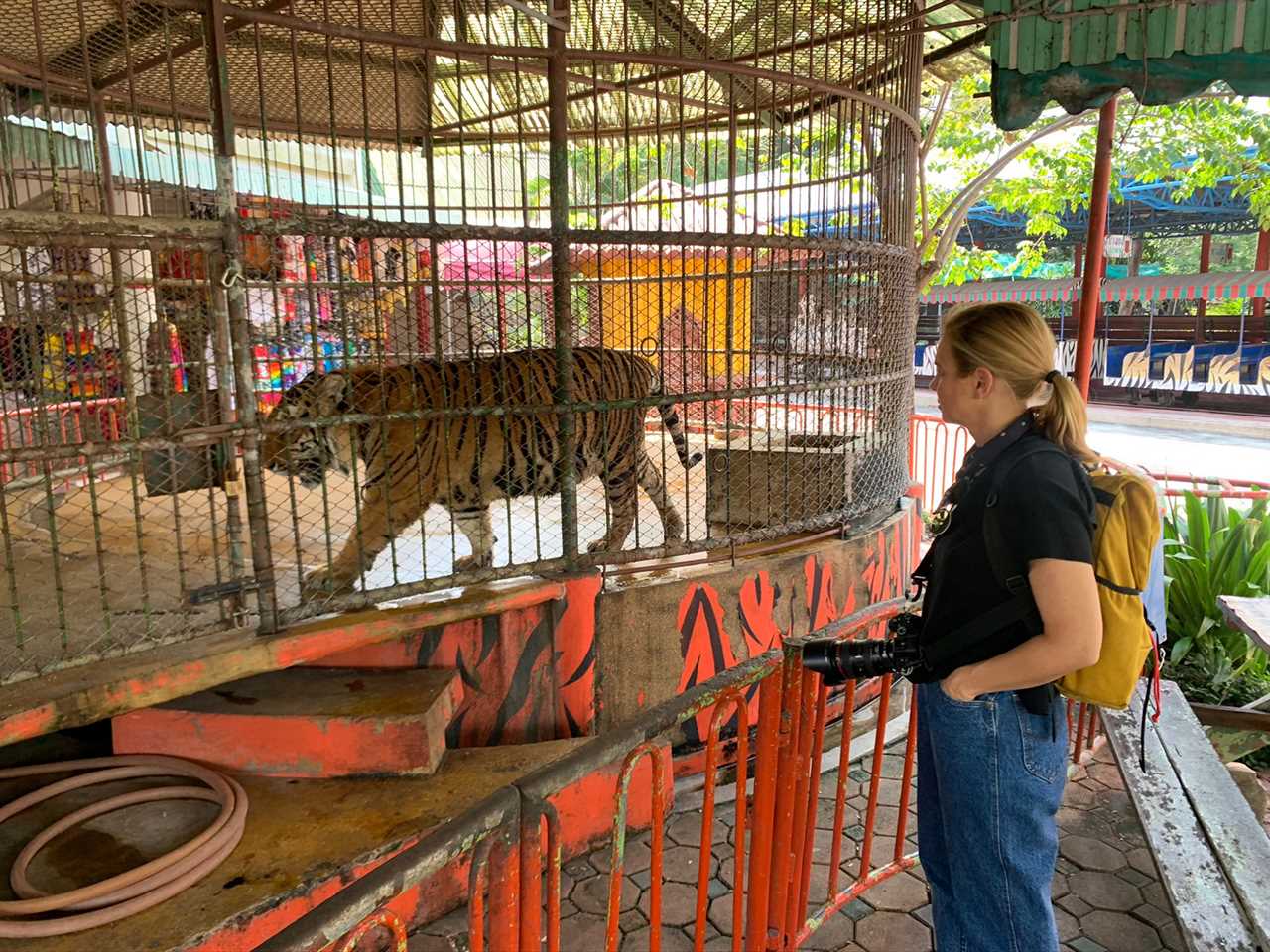
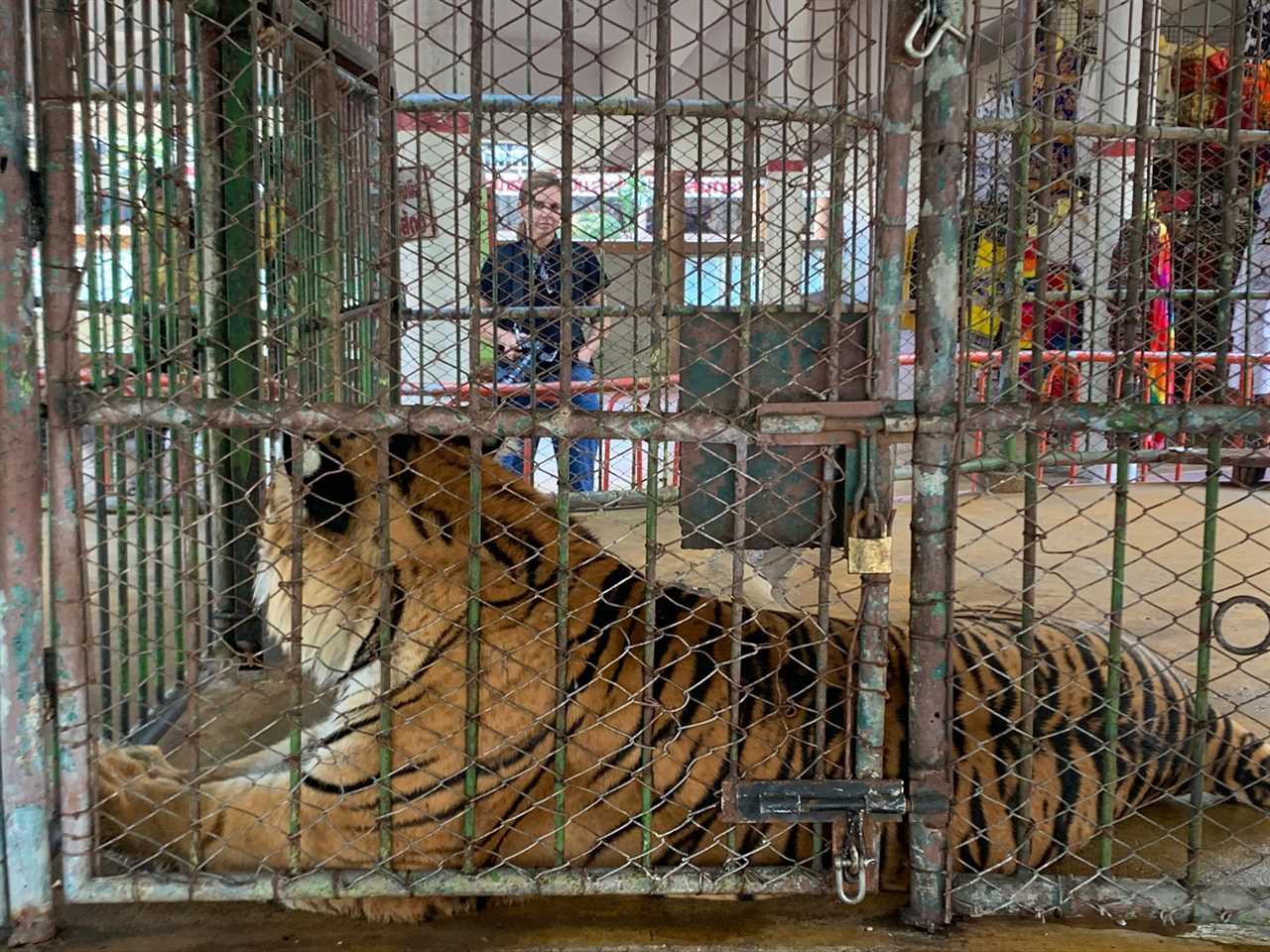
“The worst thing I encountered was Samut Prakan zoo,” she tells the Sun.
“They chained tigers and hold them down with a stick so that they can control them.
“People come in one after the other and take photos with these tigers, that are visibly maltreated, clearly unhealthy, sad and depressed.
“It was incredibly depressing for us and my team to watch it.”
The documentary reveals that roadside zoos like Doc Antle’s – where visitors pay £400 to play with tiger cubs – can make up to £800,000 per cub before they are too old to be petted.
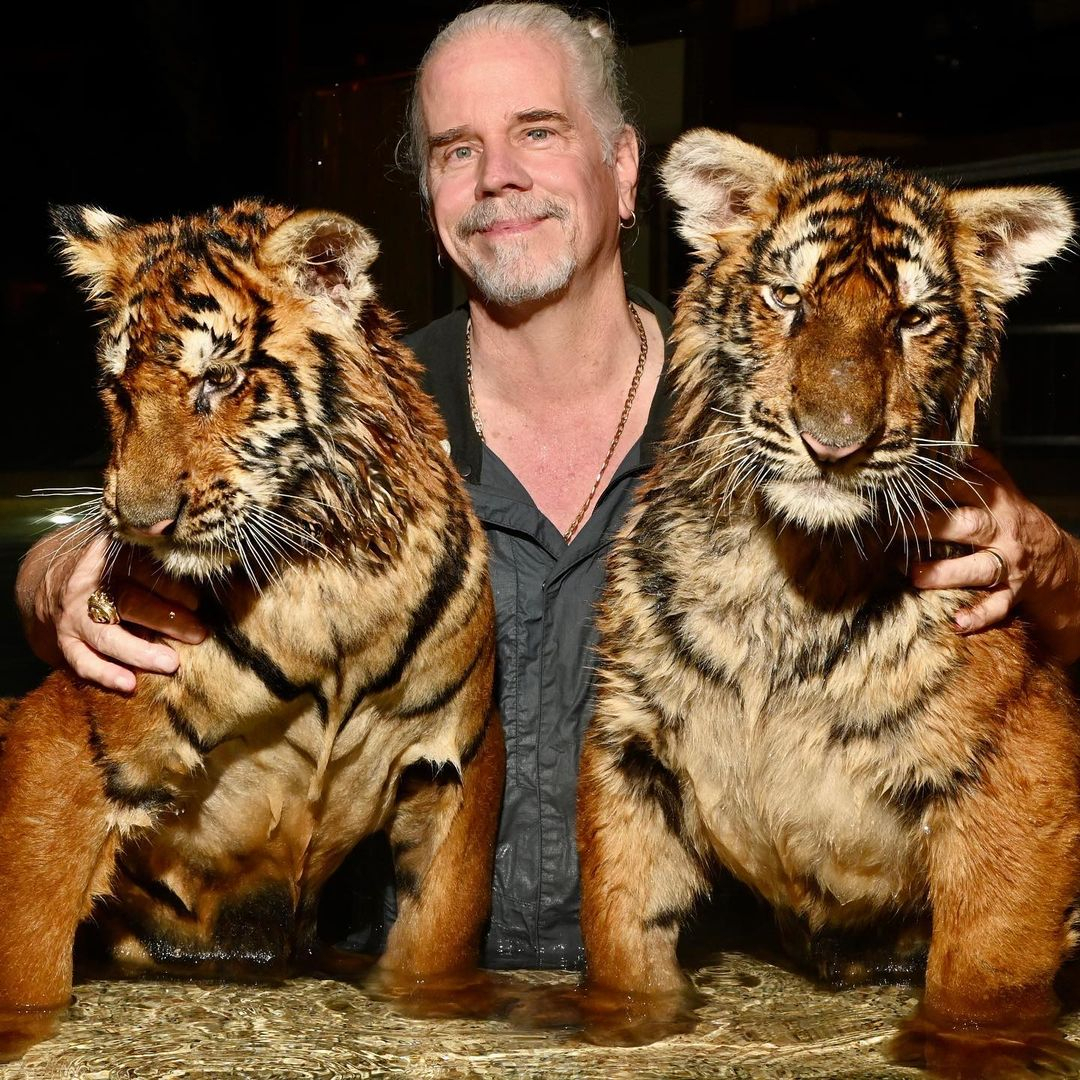
Cubs ripped from mums, passed around visitors and moved on at four months
At Doc Antle’s Myrtle Beach Safari, in South Carolina, visitors crowd into a small wooden seating area as cute tiger cubs are led on leads.
For 20 minutes at a time, the playful cats are passed around eager adults and children, bottle fed and stroked.
Taken away from their mums at birth and hand-reared to acclimatise them to human contact, they are often sold on after four months when they grow too big for the petting parties.
Shockingly, it’s estimated there are now between 5,000 and 10,000 tigers in captivity – far exceeding the 4,000 left in the wild.
Many are bred in the “roadside zoos”, such as Joe Exotic’s park and Doc Antle’s facility.
Incredibly, as there is no federal law banning big cat sales, it’s easier to buy a tiger in the US than it is to adopt a rescue dog.
After speaking to a host of experts, Mariana says she believes the cub petting is cruel.
“These tiger cubs are yanked from their mothers when they’re just a few weeks old then they’re passed around from lap to lap and handled by people who can bring in all sorts of diseases,” she says.
“Any expert will tell you that this is terrible for the well being and the health of any animal, certainly an animal that’s meant to be out in the wild.”
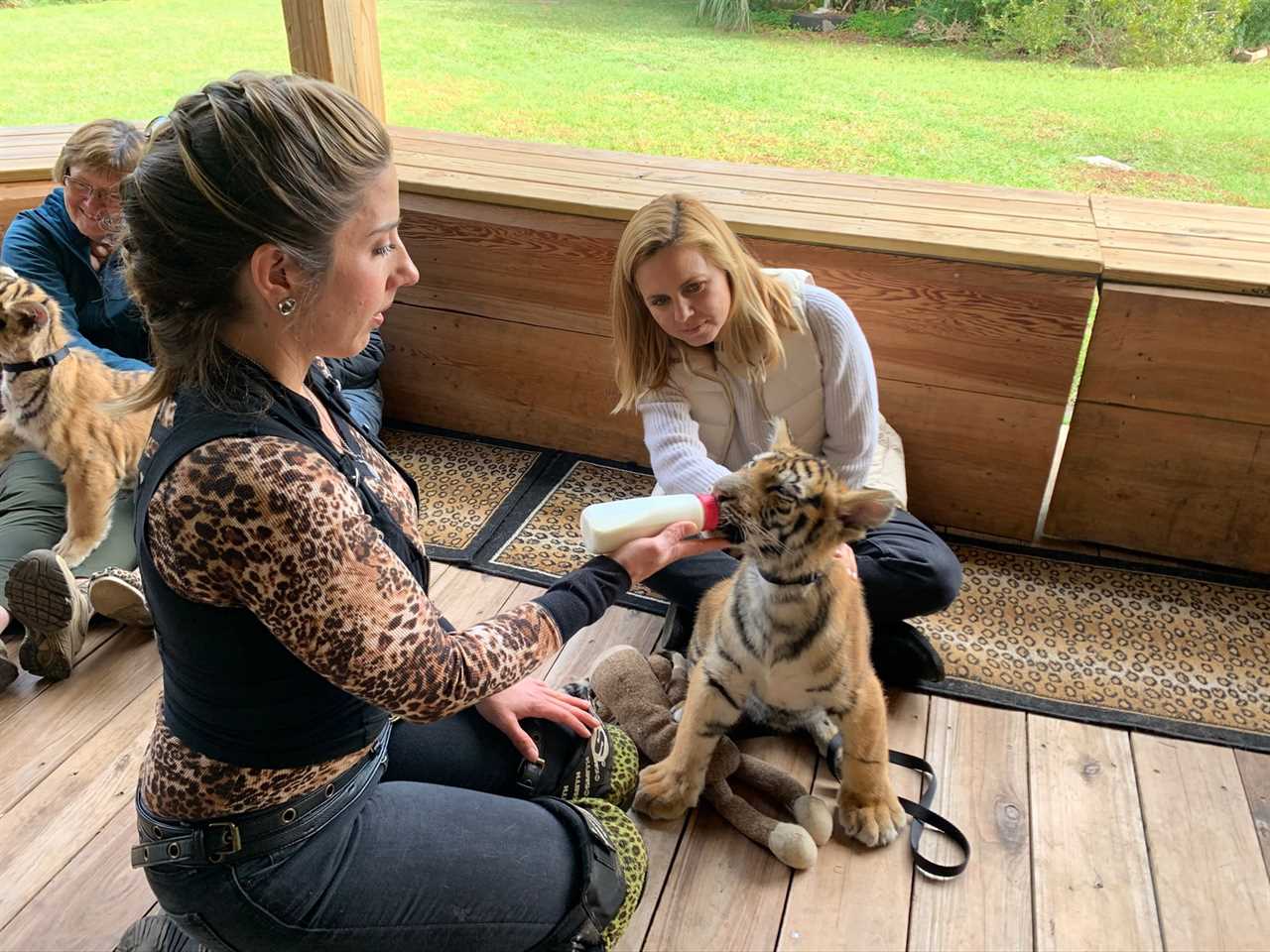
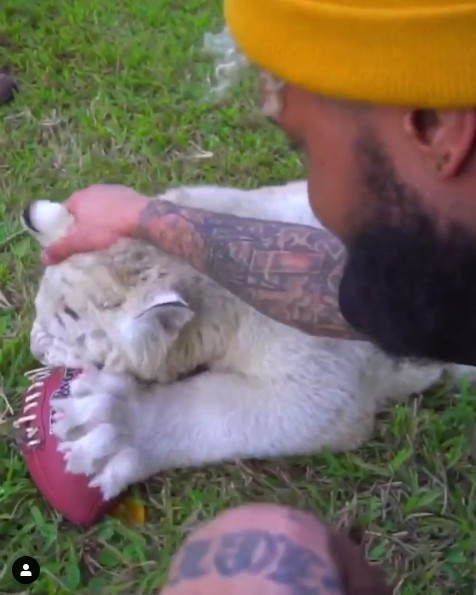
But Doc Antle – who is currently facing charges of animal cruelty and wildlife trafficking – claims the practice of petting is humane, and says his critics are spreading a “false narrative” about captive tigers.
“By hand-raising the cubs you create for them a lifestyle where they’re very comfortable in the world that they’re in,” he tells Mariana.
“Interaction with those cubs from an early age creates an ability to bond with people, his lifelong captive.
“He will never be in the wild. There’s a deep confusion going on that is pushed by fake experts.
“I’m the ONLY one qualified in this activity of raising cubs. The people you are speaking about are fanatics, extremists.”
Dr John Goodrich, Chief Scientific Officer of the animal charity Panthera, told the documentary the cubs quickly grow too big for petting. Adults weigh 400lbs, costing £10,000 a year to feed.
He added: “After the cubs are four months, they’re too dangerous. What happens to these tigers then, no one really knows.”
Refusing to reveal where most of his adult animals end up, Antle claimed they all went to “accredited facilities ”.
He said a journalist who previously exposed terrible conditions at Samut Prakan was “an animal extremist.”
But, in a blow to Antle, even his former protege Joe Exotic has had a change of heart since being jailed for 22 years, for attempting to hire someone to kill rival Carole Baskin.
Speaking from his Fort Worth prison, he said: “I hate to sound like an animal rights person but my whole outlook on animals being in captivity has changed since I went to jail.
“If I would have known 20 years ago what life inside a cage was like, I would never have had a zoo. It doesn’t matter if it’s a tiger or a gerbil, no animal belongs in a cage.”
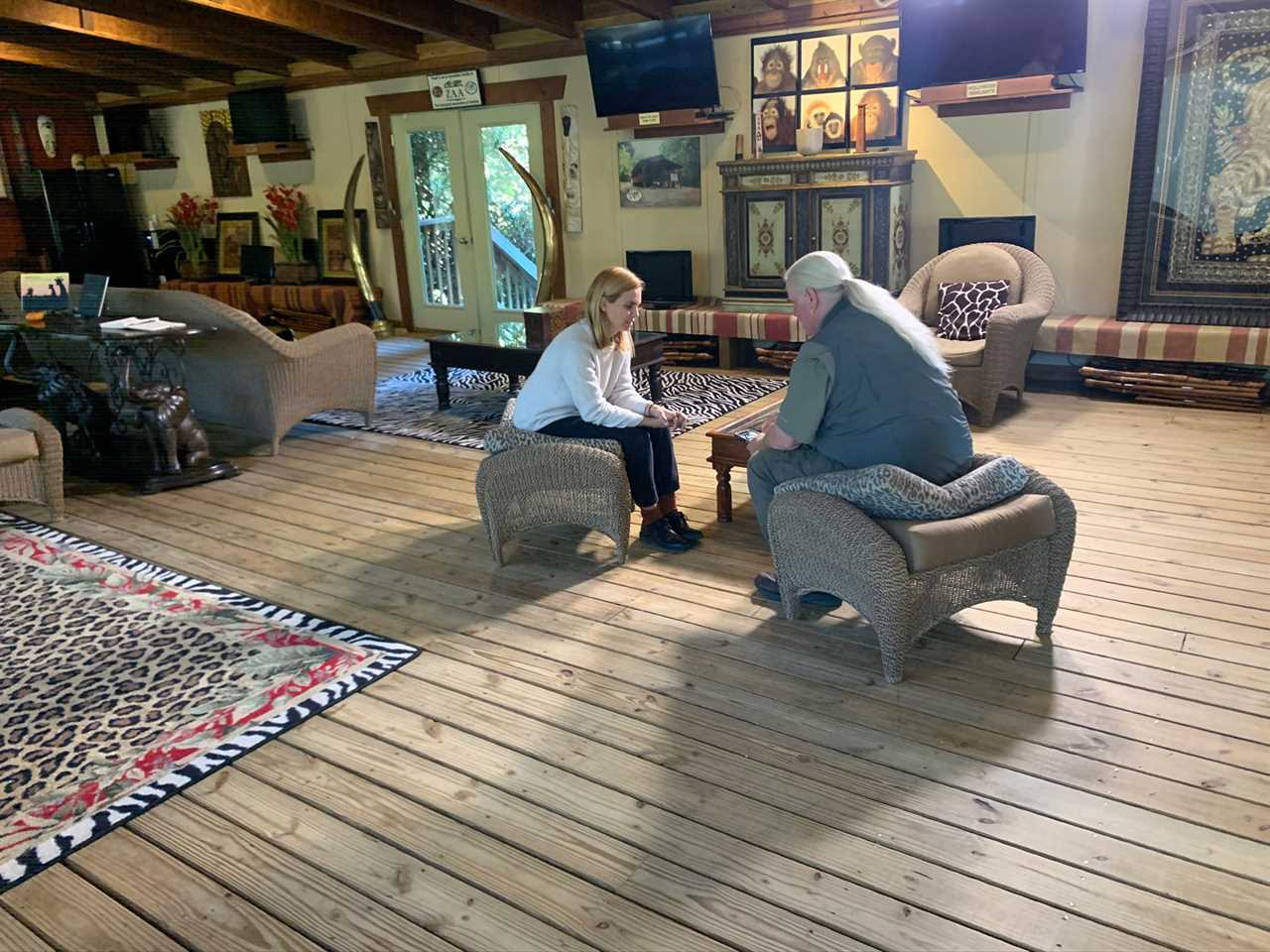
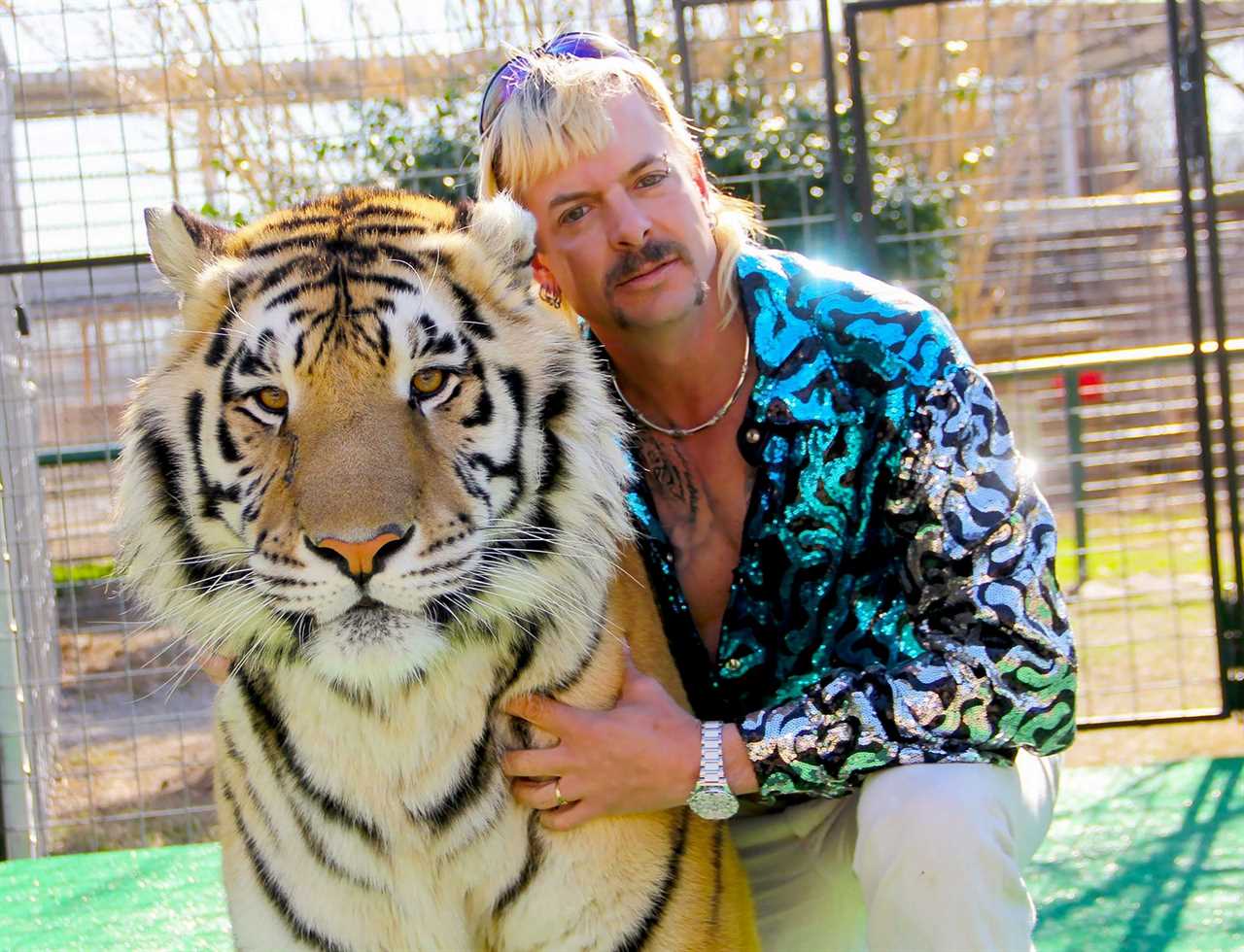
Dead tigers sold for £37,000
While zoos and wildlife parks breed big cats in the US, tiger farms and poachers market rare products from tiger wine to medicines – in an illegal wildlife trade worth £15billion.
There are an estimated 8,000 tigers in Chinese farms alone and just one dead cat fetches between £22,000 and £37,000 on the black market.
With most illegal trade done in the ‘Golden Triangle’ between Vietnam and China, Mariana travelled to Laos, in the centre of the region, to investigate casino owner Zhao Wei – named as a gangster by the US Government and said to be involved in drug smuggling, child prostitution and wildlife trafficking.
“We had heard rumours he was breeding tigers and selling tiger products in his casino,” she says. “We’d been told the location, but when we got there they had been moved somewhere else.
After persuading a local to take them to the new site, they were confronted by security guards who threatened to call Zhao.
“We started getting a little nervous,” she says.
“It had been reported that Laos is very corrupt, and the authorities are in the pockets of the people who run this enclave, so we thought we were going to be picked up, thrown in jail or something worse.”
Fearing for their lives, the team called it quits.
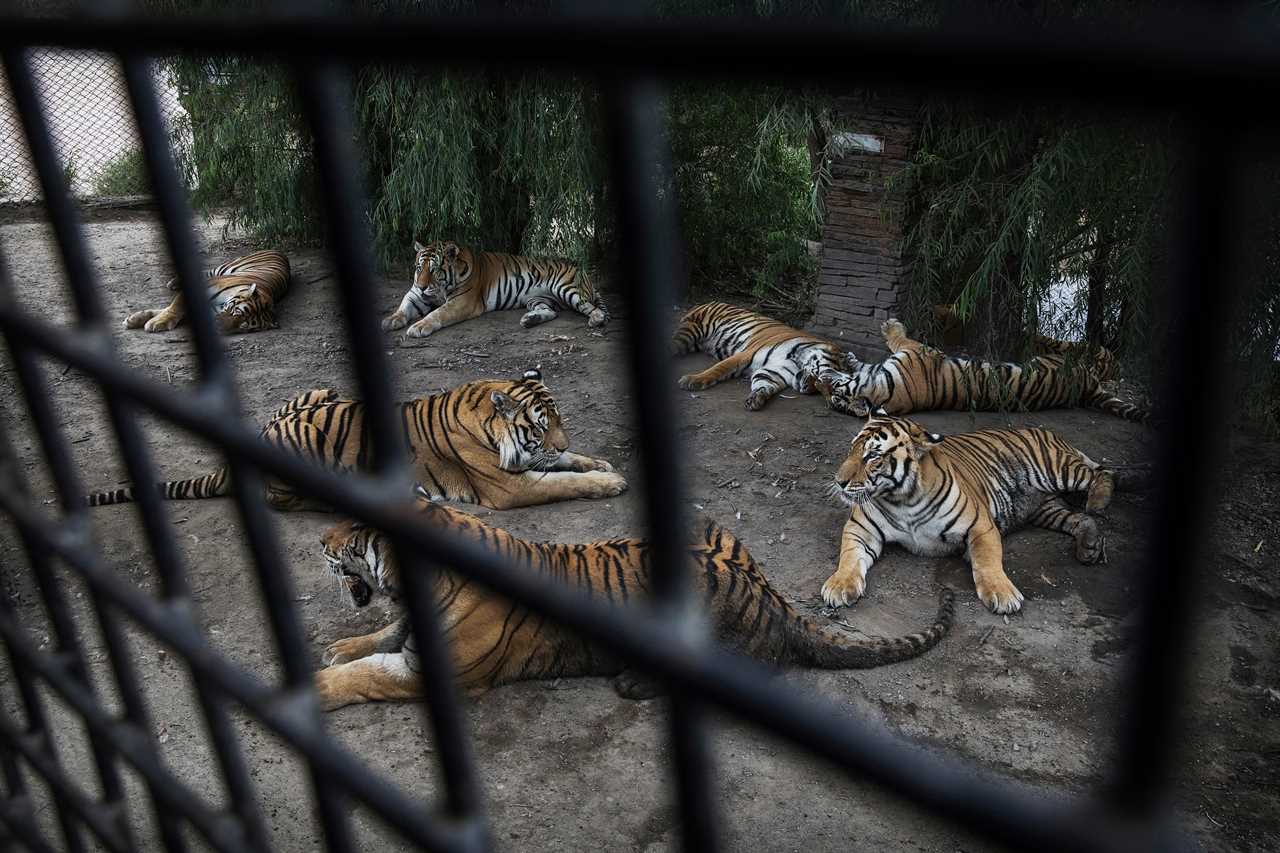
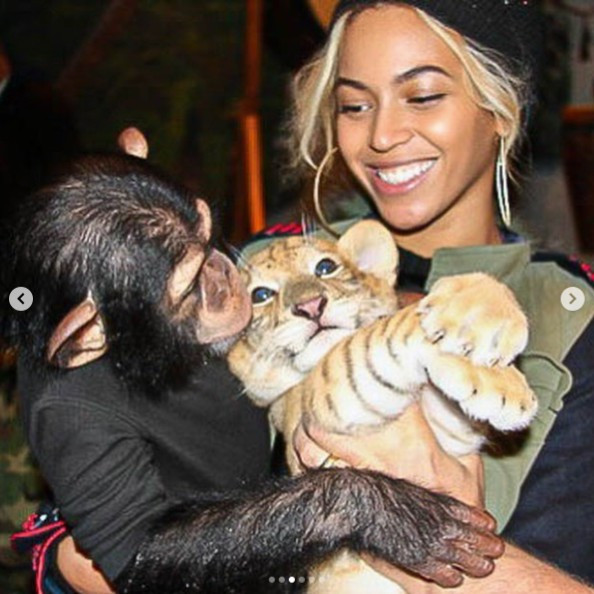
Poached tigers more ‘potent’ and valuable
For those few tigers left in the wild, poaching is a huge problem – fuelled by the lucrative black market.
Wild tiger products, such as medicines and creams, are considered more potent so buyers pay more for a poached tiger.
Mariana spent time with an elite force of rangers in Thailand, tasked with hunting the hunters and protecting the animals.
British expert Tim Redford, from the Freelance Foundation, told her: “Poachers are poorly paid people, struggling to make a living and they are being exploited by middlemen and kingpins at the top who are making an awful lot of money.
“Poachers are seeing the (tiger) farmers making money and they want some of that. It’s very easy money to go into the forest and shoot a tiger or snare a tiger. So the demand is creating more poaching in the forests.”
To Mariana, the way the West treats big cats is more shocking than the poaching.
“Yes, they are butchering tigers and using them for tiger parts in Asia but we’re breeding them, so that we can make money and people take selfies with cute little baby pet tigers,” she says.
“We don’t really care about the well-being of the tiger as long as we have a photo to post on our Instagrams and Facebooks.
“That to me was really disturbing. Unless we change there won’t be any Tigers left in the wild in our lifetime, and that’s really depressing.”
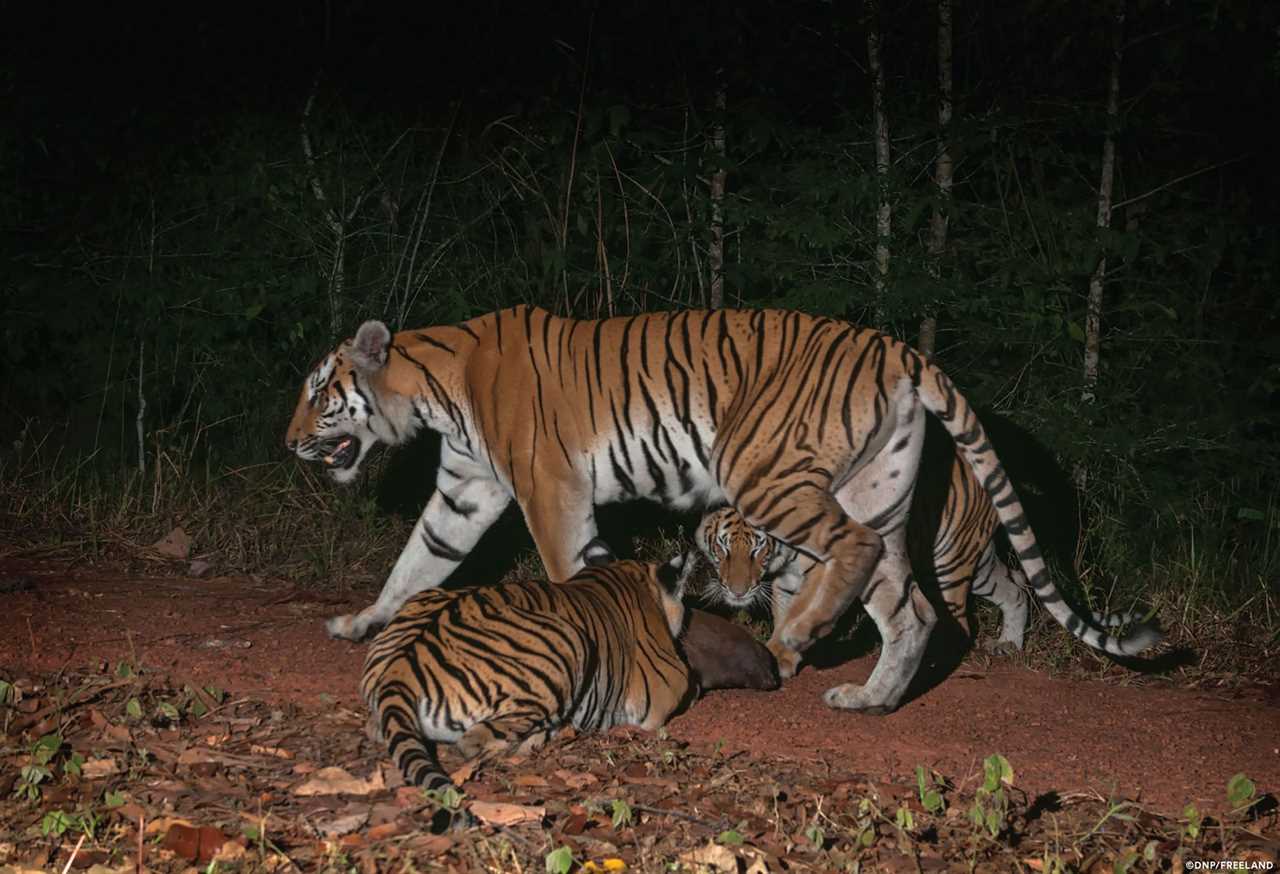
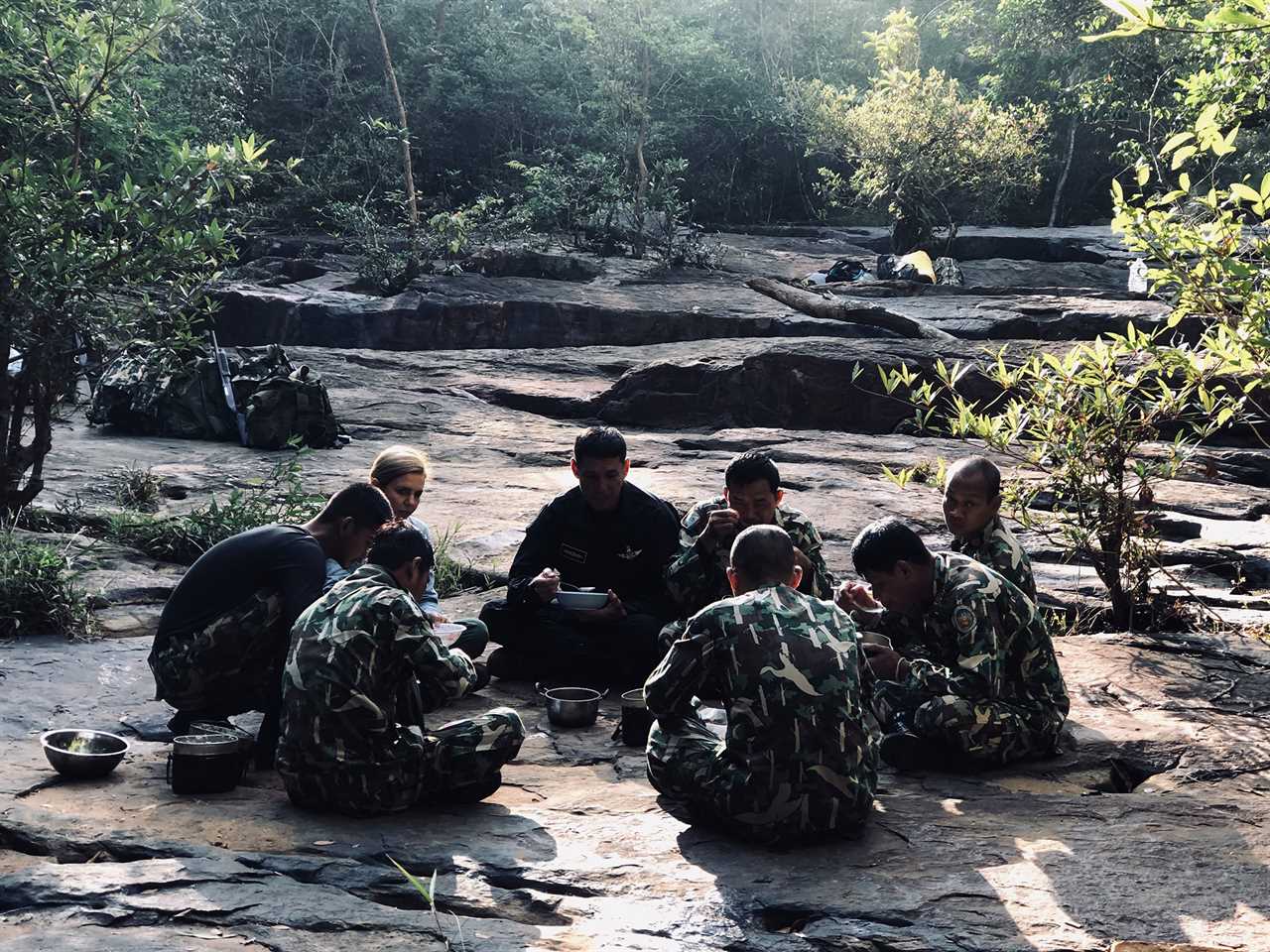
American ‘shame’ over Tiger King
Last year’s Tiger King highlighted the controversial breeders in the US and Mariana says she hopes to raise wider issues in her documentary, filmed before the Netflix hit aired.
“I welcome any content out there, including Tiger King, that helps people understand how tigers are being treated,” she says.
“Even though their show is about the people, and we find them fascinating , you can’t watch Tiger King without feeling some shame, as Americans, over how tigers are being treated in this country.
“I’m hoping we can move the conversation forward and really focus on the plight of the tigers.”
Trafficked is new and exclusive to National Geographic, Mondays at 9pm from January 18
Did you miss our previous article...
https://thecelebreport.com/television/antiques-roadshow-guest-floored-by-huge-offer-for-statue-of-boar-he-dug-up-in-back-garden






